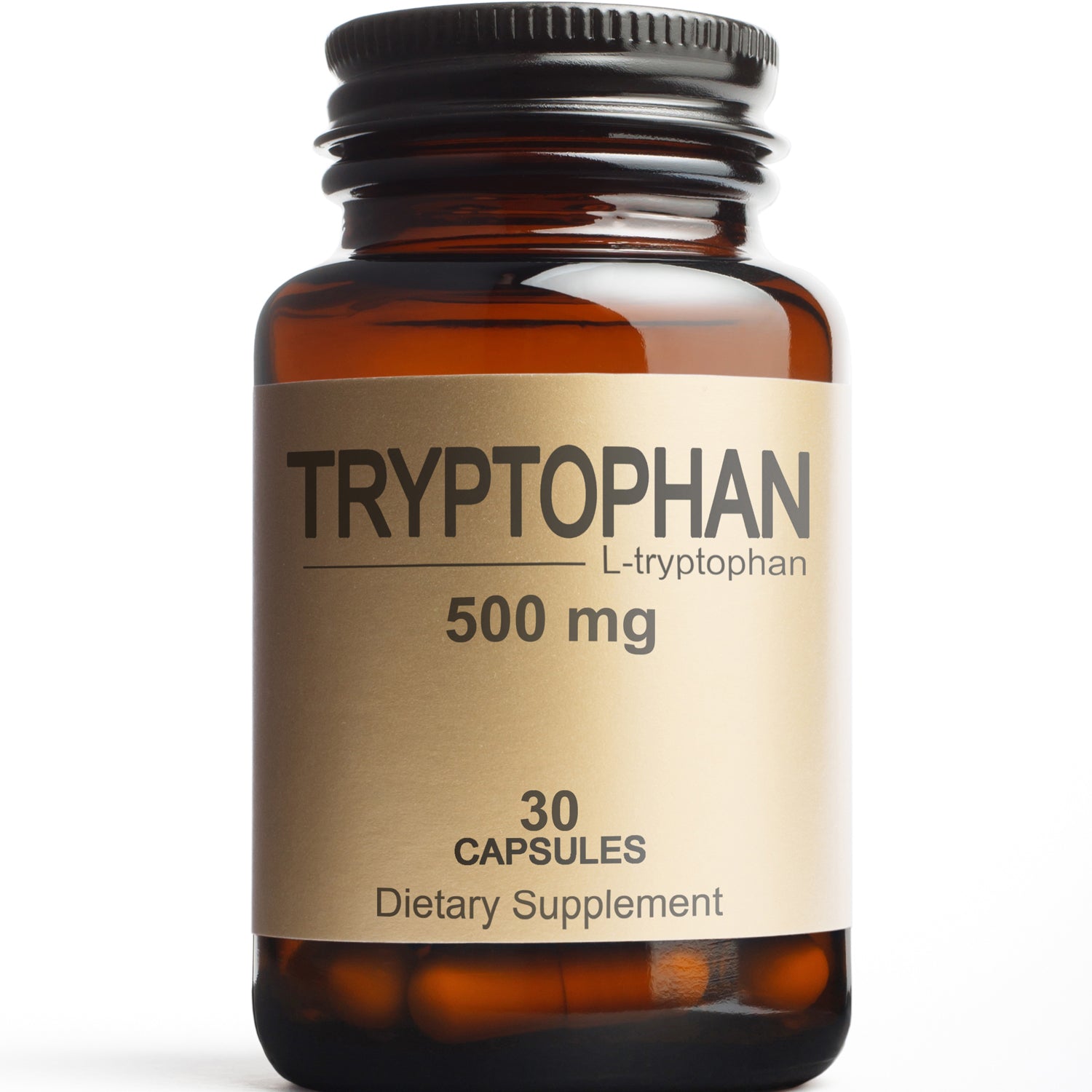Tryptophan is an essential amino acid used for making proteins in the body. It’s used to make niacin, too, which is a precursor for serotonin.
It’s found in a lot of foods high in protein like red meat, eggs, cheese and fish, but is also sometimes taken by athletes in powder or tablet form.
The main reason that athletes use tryptophan is to improve their sleep. With better quality sleep comes better recovery and more fitness gains.
But what evidence is there that Tryptophan will improve your sleep and is it worth taking as an athlete? Built for Athletes takes a look.
Using Tryptophan To Improve Sleep
Tryptophan can improve your sleep because serotonin is converted into melatonin - sometimes known as the sleep hormone.
Melatonin helps regulate your sleep cycle, ensuring your body knows when it’s time to rest and can get the most out of those hours.
Studies have confirmed this relationship with tryptophan and melatonin [].
Research also shows that consuming tryptophan from normal food sources helps people fall asleep faster and stay asleep for longer.
Unfortunately, there is very little evidence on whether taking it as a supplement actually does result in better sleep. It has been found to improve mood, though, which can have a knock-on effect to help you nod off in the evening.
Interestingly for athletes, there’s some evidence that tryptophan can improve aerobic performance, thought to be due to numbing the
effects of physical pain.
However, there’s been very little research into this and you might be better off trying caffeine to boost performance, as it has a lot more research behind it and is widely used.
Dangers & Potential Side Effects Of TryptophanIt’s important to consider that supplementing with tryptophan can cause some adverse side effects.
These can include headaches, blurry vision and stomach pain. If you are supplementing with tryptophan, you should never exceed the recommended dose and consult a doctor if you have any medical conditions.
Should Athletes Take Tryptophan?Ultimately athletes probably don’t need to take Tryptophan unless they are having difficulties sleeping.
While some companies try to aim it at people who are physically active, it’s usually better to stay clear of becoming reliant on a supplement in order to get to sleep.


Share:
3 Breathing Exercises To Decrease Stress & Boost Recovery
6 Tricks To Boost Your Immune System In Winter